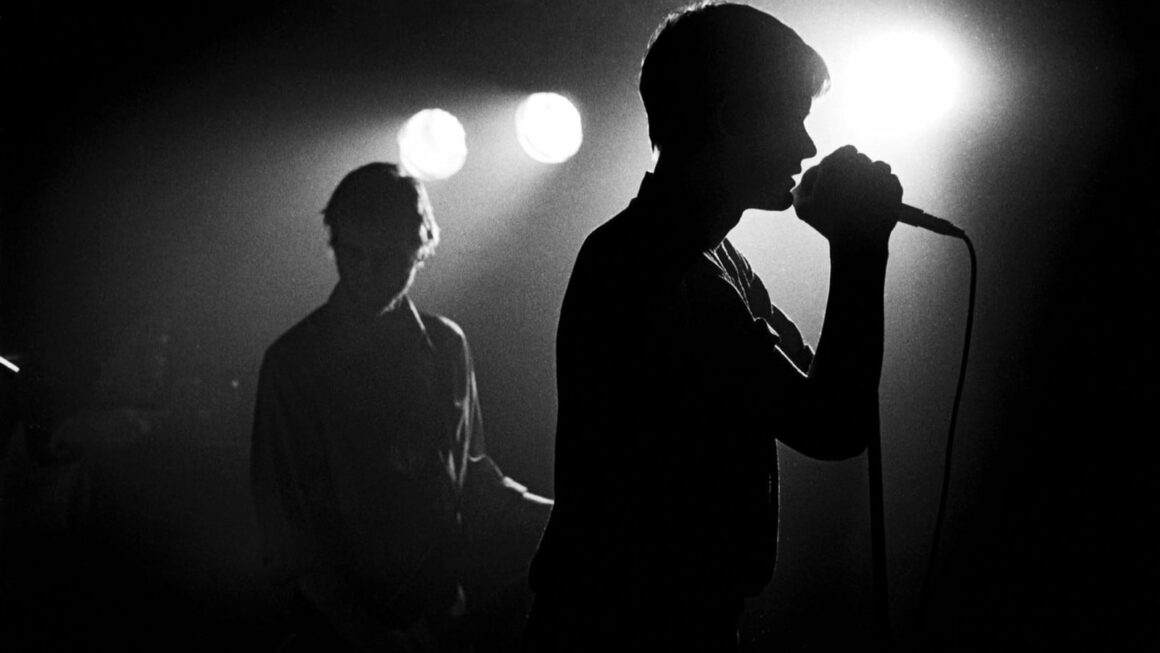
The Right Stuff: When Johnny Marr got in the Studio with Roxy Music’s Bryan Ferry
An in-depth look behind the collaboration that turned out to be greater than the sum of its parts.
To those who are not musicians themselves, it is as mysterious as to where songs come from, as what might be on the dark side of the moon or what might lie in deep space. The thought processes of the creative mind often generate entirely new ideas based on what they are exposed to. A prime example of this is the origin of Bryan Ferry’s 1987’ classic “The Right Stuff”, a track that was the result of one of the most special collaborations of the 1980s.
Fans of The Smiths who are listening to the track for the first time will quickly recognise the song’s humble beginnings. They are in fact part of the B-Side to “Bigmouth Strikes Again”, entitled “Money Changes Everything”. The song itself was originally an instrumental guitar track written by Smiths guitarist Johnny Marr. It wasn’t until Bryan Ferry began looking for some co-writers and was immediately drawn to Johnny Marr’s playing after having heard the track and several other Smiths records. This resulted in the two setting up a collaboration where Marr played guitar in Ferry’s studio – and as Ferry had long been an idol of his, the energy between them eventually resulted in a collaboration that turned out to be greater than the sum of its parts.
“Bryan Ferry was an old hero of mine, and it was great to work with him, but the end result was… he’s a bit blow waved.”
Johnny Marr
So when a song is written in such a way, who could be considered the true writer? Or does it in fact, write itself? Due to the little-understood ways in which great musicians work together, it is not always obvious how artists get from point A to point B in terms of how they write – the ability to showcase their working style is not always necessary given that the end result is fantastic music. However, great songs can be churned out even when the musicians are not entirely in tune. Some accounts of the songwriting process for “The Right Stuff” include Johnny Marr as having been slightly out of sync with Ferry – saying “Bryan Ferry was an old hero of mine, and it was great to work with him, but the end result was… he’s a bit blow waved.”
However, if this was the case, it definitely doesn’t show in the song – and it can be debated over and again whether it has more of Ferry or Marr in it. With a fantastic riff instantly recognisable amongst the rest of both The Smiths’ and Brian Ferry’s catalogue, “The Right Stuff” is in some ways a perfect synergy between the two. The fact that it is a collaboration – and one which has repurposed a riff – is highly evident, but does not take away from its impact by any means.
Such collaborations have always been polarising in the musical world, and it is possible that the interactions between Ferry and Marr during the writing process feed through into the song – such that any of Marr’s idolisation of Ferry, combined with the fact that Ferry didn’t know who Marr was at the beginning, are all factors that contribute to the end product. In fact, it is only in the production where you hear a really significant change, with the Ferry version being much less underground.
Nevertheless, the two also start differently and with differing impacts – instead of using a very present introduction like Ferry, Johnny Marr’s original begins with some low key synths, before the track’s beat and groove build momentum and the listener is completely in tune. In this way, there is a continuous thread that runs throughout both tracks – that of the riff – but individually, they can be enjoyed for completely differing qualities.
Thanks to the relative fame coming from the collaboration with Ferry, the instrumental Smiths track was remastered in 2011, and released on the same album as it was originally, namely The World Won’t Listen. In some ways, it is almost closer to punk than it is to new wave, being reminiscent with its punchy bass and palm-muted guitar to some of The Clash’s larger singles such as “Rock the Casbah” and “Should I Stay or Should I Go”, with a funky atmosphere and riffs which are more complex than they may originally appear. All in all, it is a song in itself despite being instrumental – an undiscovered gem in The Smiths’ catalogue which was catapulted into the public consciousness by Ferry’s involvement and his repurposing of it.
Although the track’s name was changed when released by Ferry, the guitar riff is still recognisable – albeit somewhat harder to pick out amongst the complex production of different drum types – and the piece of the track that fuels it. Otherwise, it does sound very different from The Smiths’ own work and Ferry has definitely added a more soulful touch. In addition to that, it is also the overall production that emphasises the top wavelengths of sound much more, building in higher-pitched backing vocals and wider panning than the bass-heavy track written by Marr.
For an era and genre of music that has remained relatively underground, New Wave has seen considerable amounts of synergy between musicians who made the era fruitful and created a cluster of bands that all fed off each other. The Smiths themselves are a collaboration – one where the musical interchange between the two protagonists meant each could act in a complementary fashion to the other.
“The Right Stuff” is a case where a much larger, more established artist works with somebody they haven’t heard of, and sometimes there can be elements of hierarchy in these kinds of song beginnings – think of the examples of classic blues songs which have been taken by larger rock stars and made famous while altering them from the originals. Marr’s comments about Ferry can only hint at some of the song-writing process, and indeed, the final track does sound more like Ferry than Marr. In addition, it could be considered to lose some of the edginess and underground credentials of the original – but these kinds of collaborations can always be looked at from multiple points of view. Without the relatively higher amounts of attention Ferry was getting at the time, it may have been that the original was never remastered nor boosted to a higher level of acknowledgement.









